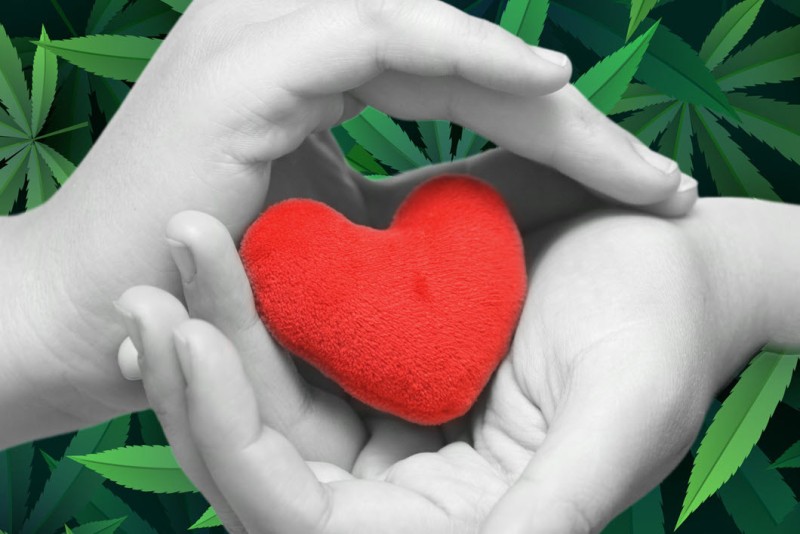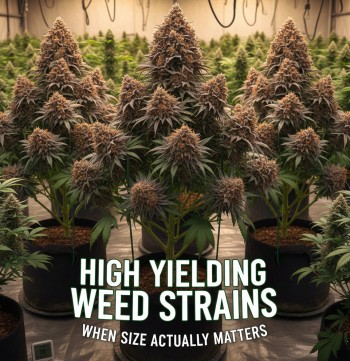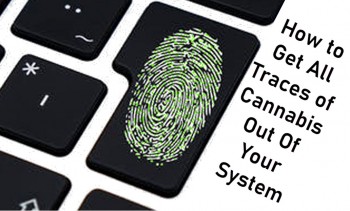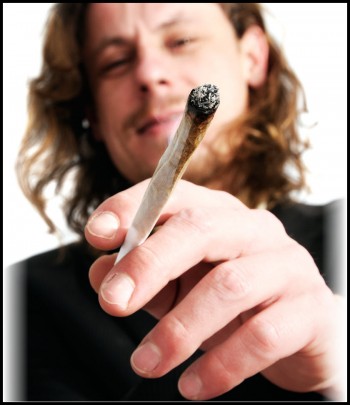
Baked and Benevolent: Are Stoners More Empathetic?
Picture the archetypal cannabis user - long hair, tye dye shirt, blissed-out gaze. Media tropes paint tokers as chilled out, easygoing free spirits gliding through life mostly unbothered. The friendly neighborhood pothead floating downstream without many worries.
Even old-school anti-drug hysteria casts the zonked stoner slouching on couches as harmlessly detached rather than violently unhinged. Fast food and vibes rank higher than much else in their lowered states of consciousness. Fairly nonthreatening overall despite the reefer madness descriptors.
And while obviously stereotyping varies widely among the immense diversity of human cannabis enthusiasts, a general vibe of relaxed benevolence does seem more prevalent compared to drinkers' unpredictability or stim users' fidgety edge.
Recent research now suggests substance behind the stoner serenity beyond just legendary cultivars like Blue Dream and Sour Diesel. Cannabinoids may directly enhance qualities like empathy according to new studies.
A 2023 clinical study found regular cannabis consumers demonstrate greater emotional intelligence and perspective-taking on written tests and brain imaging. Specifically, cannabis users showed more comprehension of others' subjective emotional experiences over non-users when analyzed through MRI scans and assessments.
Researchers believe the plant's effects on neural regions related to affective states may modulate social processing. In less technical terms - weed's natural pharmacology seems to physically boost relatability and social intuition.
So the chilled out caring disposition of many stoners likely derives at least partially from biological mechanisms heightened by the plant. Turns out kind bud might truly kindle kindness!
Of course correlation still skirts causation. Pre-existing personality differences could draw more empathetic people to cannabis initially rather than vice versa. Or other confounds like lifestyle routine may contribute too.
But the preliminary data points clearly enough - from brain imaging to anecdotal stereotypes, cannabis seems connected to emotional intelligence and social bonding rather than apathy or isolation.
So let's dive deeper into the study's design and implications. Science may confirm what intuition already knows - passing a joint opens hearts and minds to each other.
Talk about reefer gladness!
Parsing the Research on Weed and Emotional Intelligence
This provocative research came from a team of Mexican neuroscientists comparing empathy levels between regular cannabis consumers and non-users.
They utilized both written evaluations and MRI brain scans to assess various aspects of empathy. This combined subjective self-reporting with objective neuromapping to strengthen methodology.
The specific test employed breaks down empathic abilities into multifaceted competencies like emotional recognition, emotional comprehension, and cognitive perspective-taking. Researchers then examine them individually.
On the core Emotional Comprehension segment evaluating understanding of others’ subjective experiences, cannabis users scored significantly higher than control subjects. This suggests enhanced social intuition possibly stemming from cannabis components modulating key brain regions involved in affective processing.
The study cites the anterior cingulate cortex (ACC) as one pivotal zone rich with cannabinoid receptors and deeply tied to emotional states. It theorizes cannabis may directly boost this area’s functions through its pharmacological binding effects, thereby expanding social-emotional insight.
As the lead researcher summarizes, "The differences in psychometric scores suggest that users have more empathic comprehension."
Intriguingly, this matches earlier research the authors reference indicating frequent marijuana consumers often exhibit stronger emotional regulation abilities alongside regular use:
"Given previous studies of the effect of cannabis on mood and emotional detection, we believe that these results contribute to open a pathway to study further the clinical applications of the positive effect that cannabis or cannabis components could have in affect and social interactions.”
So in this lens, cannabis occupies a unique neurological niche aiding emotional clarity in various modalities - both internally and interpersonally. Far from deadening senses, it seems to energize social functioning through fine-tuned cannabinoid modulation.
Of course the study has limitations to contextualize. Participants self-reported their cannabis use; biochemical validation would strengthen methodology. Causation arguments also remain speculative absent longitudinal monitoring.
Equally, the Mexican-grown cannabis possessed far lower THC concentrations than modern American commercial cannabis strains. So effects observed may compound significantly with higher potency products.
Nonetheless, these provocative preliminary findings contribute one more plank towards dismantling outdated stereotypes. Rather than hampering relational capacities, cannabis appears intrinsically supportive given proper precautions and contexts.
This broader theme echoes through earlier research on cannabis enhancing runner's highs and yoga practice via anti-inflammatory relief and mood elevation. The common motif suggests appropriately aligned biological synergy.
While more data is still needed, these snapshots illuminate potential mechanisms behind cannabis-induced empathy and wellbeing so culturally prevalent yet scientifically unestablished before.
The study authors summarize appropriately - "We believe that these results contribute to open a pathway to study further the clinical applications of the positive effect that cannabis or cannabis components could have in affect and social interactions.”
Wider Societal Applications of Cannabis Emotional Intelligence
While more studies must replicate this research before changing paradigms, provocative possibilities emerge from cannabis positively influencing empathy. Might this plant tool improve conflict resolution and social harmony in mainstream settings if findings hold weight?
The deepest implications concern destigmatizing cannabis to leverage such benefits. Transformative potential awaits not just individually but societally once outdated prohibitions crumble to embrace cannabis consciousness wholeheartedly.
For example, imagine if clinicians could recommend marijuana adjunctively in couples counseling to foster perspective-taking and emotional vulnerability by lowering defenses. Arguing spouses may find warm reconciliation impossible without that empathic spark rekindled.
Under proper guidance, a shared dispensary experience may nurture reciprocal understanding and rehumanization - the true foundation for compromise. Once gripped by negativity, only opening hearts allows progress.
Or what if psychologists incorporated cannabis components into group talk therapy protocols to dissolve biases and forge interpersonal insights organically? By easing social barriers, long-unspoken truths flow freely to bind communities.
The criminal justice arena equally cries for reform through compassion. Mandating cannabis-literacy training for police and guards could radically transform enforcement from paramilitary excess towards connecting with civilians as fellow struggling humans.
Equally, allowing monitored cannabis access in prisons may alleviate violent tensions by awakening inmates and staff to shared fundamental realities beyond surface judgments - our universal search for purpose and belonging beyond bars. Recidivism rates could plunge accordingly.
politicians too might benefit personally and professionally from periodic cannabis-induced institutional empathy check-ins. Devoting monthly sessions to inhabiting voters’ realities could manifest transpartisan wisdom to guide policy. Leadership means deeply hearing those governed, after all.
Even global diplomacy and conflict resolution domains might incorporate elements of intercultural cannabis communion in the highest stakes negotiations. Breaking bread through bongs supersedes translators in building bridges between even the most alienated nations.
The principle animating such explorations suggests that recalibrating default consciousness states periodically can radically reshape what possibilities we process and priorities we honor collectively. Our mindsets dictate the world we co-create.
While still hypothetical, perhaps cannabis really does hold unique crossover potential to enrich emotional health both individually and societally after all. If so, transcending reductive stereotypes promises a paradigm shift through elevating human relations to sacred importance above all else.
Of course, risks and complexities abound regarding dosage, set and setting protocols, moral debates, etc for mainstream integration. But around the medicinal margins, some intriguing innovation already occurs. And the larger premise persists indelibly.
What if wider humility and goodwill indeed lives but a few tokes away?
The Sticky Bottom Line
Rather than instantly prescribing synthetic pharmaceuticals to address mood disorders or emotional issues, perhaps cannabis should occupy the second line of therapy - with lifestyle changes and holistic practices the first resort.
This honors the intrinsic wisdom of our evolved endocannabinoid system while maximizing natural self-healing capacity through commonsense wellbeing strategies - sleep, nutrition, community, physical movement, introspective practices like meditation or journaling, etc.
If such grounded rituals falter in managing trauma, anxiety and depression, cannabis then offers a safe supplemental ally for many before considering standard alienating psych meds. And should cannabis not lift the darkness, other empathogens like psilocybin may before serotonergic drugs.
This medically pluralistic framework thus places power and responsibility in clients' hands rather than defaulting reflexively to diagnosing "chemical imbalances" treatable only through lifelong pill regimens at risk of zombification.
The emerging science confirms psychedelics' disease potential uniquely through activating neuroplasticity, emotional sensitivity, social connectivity and sense of meaning frequently damaged in mood disorders - unlike numbing side effect-laden antidepressants.
So whether as daily microdosed companions or structured high-dose sessions, their value proposition strengthens against traditional Monopoly medicine waging war against symptoms rather than holistically nurturing people's healing relationships within.
The sticky truth remains - our life matrix encompasses countless variables beyond assumed serotonin shortages extractable through isolate chemicals. Thus consciousness itself proves the master tool allowing navigation of many complementary modalities.
Cannabis and other plant teachers belong in this expanded care ecosystem as powerful catalysts realigning patients to their sovereign authority and primacy as psycho-bio-social beings against system perspectives.
If research continues confirming intrinsic mood and social benefits of cannabis, its adoption as first-line emotional aid only quickens. The plants stand ready to uplift human hearts and minds through inner alignment above all modern pharmaceutical promises. And the people seem hungry for this reclaimed power.
The pandemic of despair will turn as the second Renaissance of cannabis dawns. All that awaits is shedding the last vestiges of fear still clouding clinical conservatism from welcoming this ageless ally home as divine healer reborn. But the momentum gains speed.






